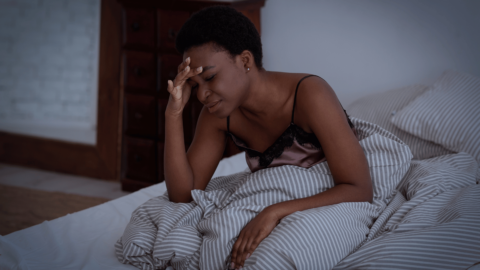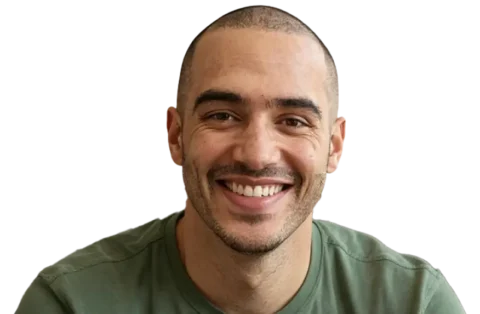If you’re going through Suboxone withdrawal, you might notice that sleep feels harder to come by. Tossing and turning at night, waking up frequently, or struggling to fall asleep are common challenges during this phase. Insomnia can make an already tough process feel even more overwhelming. Still, it’s important to remember that you’re not alone—and there are ways to find relief for insomnia from Suboxone withdrawal.
In this guide, we’ll explore why sleep disturbances happen during Suboxone withdrawal and share practical, effective tips to help you get the rest your body needs to heal.
Why Does Suboxone Withdrawal Cause Insomnia?
Insomnia during Suboxone withdrawal is primarily due to the changes your body and brain go through as they adjust to life without the medication.
Here are some key reasons:
- Chemical Imbalances: Suboxone works on your brain’s opioid receptors to regulate mood, stress, and sleep. When you taper off or stop taking it, your brain needs time to rebalance these chemicals, which can disrupt your sleep patterns.
- Increased Anxiety: Withdrawal often brings heightened anxiety or restlessness, making it harder to relax and drift off.
- Physical Symptoms: Restlessness, muscle aches, or chills—common withdrawal symptoms—can make it uncomfortable to stay asleep.
- Disrupted Sleep Cycles: Suboxone affects your body’s circadian rhythm, or “internal clock.” When it’s removed, your body may take a while to readjust.
How to Improve Sleep During Suboxone Withdrawal
While insomnia during withdrawal is common, there are steps you can take to improve your sleep quality. Here’s what works.
1. Stick to a Consistent Sleep Schedule
Going to bed and waking up at the same time every day helps reset your body’s internal clock. Even if you’re struggling to fall asleep, staying consistent with your schedule can gradually train your brain to expect rest at certain times.
2. Create a Relaxing Bedtime Routine
Ease into sleep by calming your mind and body before bed.
Consider:
- Deep breathing exercises or meditation.
- Listening to soothing music or nature sounds.
- Reading a book (avoid screens close to bedtime).
3. Optimize Your Sleep Environment
Your bedroom can make or break your sleep quality.
Aim for:
- Darkness: Use blackout curtains or an eye mask.
- Cool Temperatures: Keep the room comfortably cool.
- Quiet: Try white noise or earplugs if noise is an issue.
4. Avoid Stimulants in the Evening
Caffeine, nicotine, and even heavy meals can keep you awake longer than you’d like. Limit these in the hours leading up to bedtime to give your body time to wind down.
5. Use Over-the-Counter Sleep Aids With Caution
Non-prescription sleep aids, like melatonin or diphenhydramine (Benadryl), can help in the short term. However, use these under the guidance of a healthcare provider to avoid dependence or interactions with other medications.
6. Stay Active During the Day
Physical activity helps tire your body out naturally, making it easier to fall asleep at night. Even a short walk can make a big difference, but avoid vigorous exercise close to bedtime.
7. Manage Anxiety and Stress
Since anxiety often fuels insomnia, finding ways to manage it can help. Counseling, mindfulness techniques, or speaking with a doctor about short-term anxiety treatments can provide relief.
When to Seek Help
If insomnia persists or becomes unmanageable, reaching out for support is important. Poor sleep can affect your physical and emotional health, and addressing it early can prevent further challenges in your recovery.
Telemedicine services like QuickMD connect you with experienced addiction specialists who can help you manage withdrawal symptoms, including sleep disturbances. Whether adjusting your tapering plan, recommending safe sleep aids, or providing strategies to reduce anxiety, QuickMD makes it easy to get expert care from home.
FAQs About Suboxone Withdrawal and Sleep
Is insomnia common during Suboxone withdrawal?
Yes, insomnia is one of the most common symptoms during withdrawal. It typically occurs as your body adjusts to the absence of the medication.
How long does withdrawal-related insomnia last?
For most people, sleep disturbances peak during the first week of withdrawal and gradually improve over a few weeks. However, this varies depending on the individual and their tapering plan.
Can melatonin help with withdrawal insomnia?
Melatonin may help some people reset their sleep cycles, but it’s always a good idea to consult your doctor before starting any supplement.
Should I consider prescription sleep aids?
In severe cases, a doctor may recommend short-term use of prescription sleep aids. These should always be taken under medical supervision to ensure safety during withdrawal.
Final Thoughts
Suboxone withdrawal is tough, and struggling with insomnia can feel like yet another hurdle in the process. But with the right strategies and support, restful nights are possible. Focus on building a routine that prioritizes your sleep, and don’t hesitate to seek professional help if you need it.
Remember, recovery is a journey, and every small step you take brings you closer to a healthier, more restful future. If you’re looking for guidance, schedule a consultation with QuickMD.




